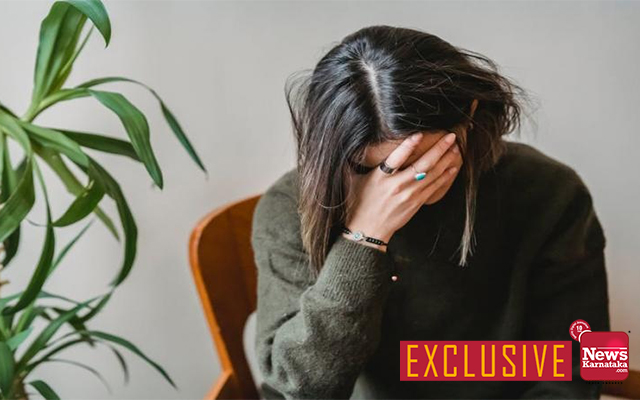
While India globally ranks second in the highest number of Covid-19 cases, the current plight caused by the virus is a very unfortunate and indeed an extraordinary one. With the expected third wave to hit the state soon, there are speculations that a lockdown may be re-imposed once again. With lockdowns, there is not just restriction on social meetings, but also on social sense of gratification and psychological wellness. Thankfully now, there has been an administration of vaccines which some people are considering as a major shield against Covid, giving a free license to travel with a decreased sense of fear. The dynamic journey it has been since its emergence in India in early February 2020, has impacted everyone physically and emotionally. Issues concerning mental health amidst the pandemic are gaining much attention in the areas of research.
In studies throughout the first and second wave, researchers noticed the psychological effect; the rise in cases of depression, anxiety as well as suicides since lockdown due to Covid-19. Although the lockdown was implemented in virtuous hopes, the effects of isolation, increasing screen-time with no real physical stimulation or contact has created adverse effects. According to Substance Abuse and Mental Health Services Administration, social distancing can increase not only depression and anxiety but also push the already affected, to socially isolate themselves to develop anger issues, irritability and in extreme cases, personality disorders.
Depression has become very common over the years, especially among the youth of the country. It’s a mental condition characterized by long term sadness, loneliness, anhedonia (the absence of feeling any pleasure in previously interested hobbies) and so on. The catch is in the fact that, due to confinement since lockdown in India, the proneness in developing depression has increased; people who don’t have enough replenishments to survive, associate family as a source of negativity corresponding to distress, throughout different professional sections of the society. A research study conducted in India mentioned that the possibility of developing comorbidity, a combination of major depressive disorder and PTSD, Post-Traumatic Stress Disorder, has increased due to a precipitating cause of physical abuse, since imposition of lockdowns give no escape from the abusive household. The number of cases of domestic violence and abusive environments which directly increase the proneness to Major Depressive Disorder, has hiked drastically in states Haryana, Maharashtra and Kerala.
According to an inquiry conducted by GOQii, a precautionary wellness program company, 26 per centof the 10,000 Indians suffered from mild depression, 11per cent were moderately depressed and 600 showed severe signs of depression. The generalized reasons for this elevation have been narrowed down to consumption of news that constantly reports death tolls daily, sleep deprivation due to excessive use of social media, changing lifestyle and lack of know-how regarding dealing with such an atmosphere healthily. While one expects the number to reduce this year, it is definitely not the case. A survey established that anxiety issues among students during Covid-19 are related to low financial conditions, the unaffordability of buying laptops or computers to attend classes; affecting regular routines and academic progress. Not only is online education inducing mental tensity leading to depression, but also physical strain. People who lived with joint families were found to be less distressed than those who lived alone. Undoubtedly, doctors on the forefront were discovered to be more vulnerable than other professionals.
Experts and scholars urged for a ‘mental health screening,’ emphasizing that most of the suicide cases in India could be severe depression that perhaps went undiagnosed, due to no real contact with anyone to seek immediate physical help. Furthermore, the World Health Organization has issued public interest guidelines to address psychological issues that may arise amidst lockdown. Common guidelines to ensure healthy coping mechanisms with the prevailing pandemic have been issued by various health care organizations, private and public; firstly, to protect oneself and family, secondly, avoiding constantly being surrounded by death news reportage and consuming home-made, healthy food with consistent exercising. Nevertheless, if extreme feelings of loneliness, sadness, fear and worry persist more than a month, it is recommended that one should consult professional help, although it will be addressed virtually due to this pandemic. Moreover, many clinics have now started to conduct workshops in educating the laymen about different mental impacts of the pandemic, one could always enquire and enrol to these insightful programs. Surrounding oneself by positive and happy auras, from immediate family in person and relatives, friends through contact from social media, has also been proven to be helpful. If you observe anyone in distress and you believe he or she cannot manage by oneself, call 080 2549 7777 – Sahai Helpline.
Image Courtesy IANS

















